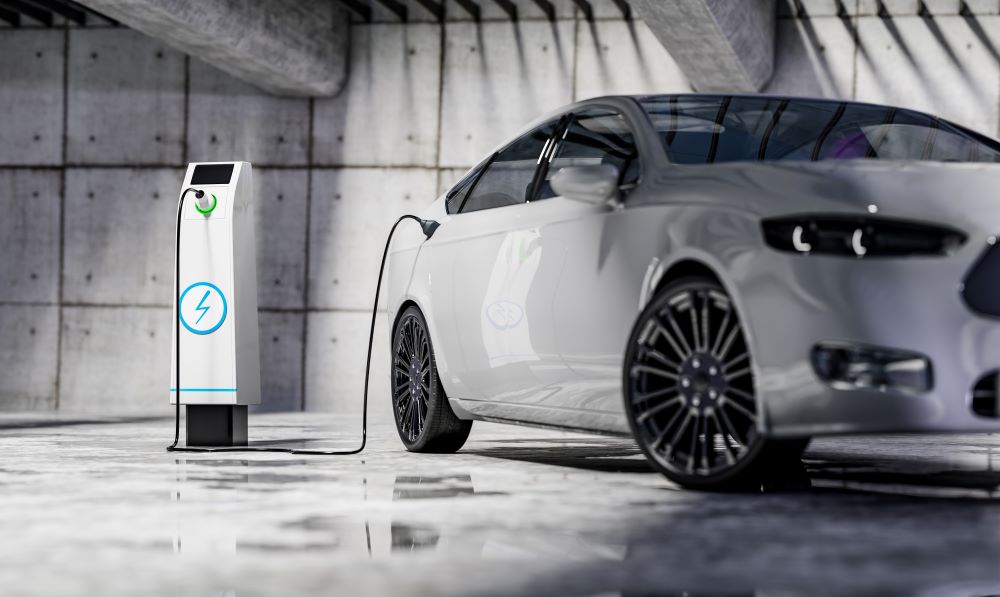
February 6, 2023

The appeal of electric vehicles (EVs) is one that attracts the attention of organizations, families, and individuals. The combination of reduced maintenance expenses due to fewer mechanical parts (no spark plugs, no oil changes, and regenerative braking) lower operating costs. Beyond practical savings, many buyers are also attracted by the federal tax credit of up to $7,500 for eligible EVs. Taken together it is easy to see why EVs have become so popular. To demonstrate this point, a survey found that in Atlanta alone, there are 36,000 registered EVs, with 1,100 charging stations available across the metropolitan area.
To continue this momentum, Congress recently extended and enhanced available tax credits in the Inflation Reduction Act. This includes the expansion of the EV tax credit to include any “clean vehicle” such as hydrogen fuel cell cars, plug-in hybrids, and more. In addition, there is a new Used Clean Vehicle Tax Credit and a Commercial Vehicle Tax Credit. Unfortunately, many taxpayers have been hesitant to claim these credits more details are needed. The good news is the IRS recently released additional guidance in IRS Notice 2023-01. To help clients, prospects, and others, Wilson Lewis has provided a summary of the key details below.
2023 Clean Vehicle Tax Credit
Under new regulations, the $7,500 tax credit for the purchase of eligible EVs has been extended until 2032. For a vehicle to qualify it must have a battery capacity of at least 7 kilowatt hours, weigh less than 14,000 pounds, and be made by a qualifying manufacturer. In addition, it must undergo final assembly in North America. Remember, the sale only qualifies if the vehicle is purchased new, and the seller reports the required information to the IRS (buyer’s name and Taxpayer Identification Number). Finally, the MSRP cannot exceed $80,000 for vans, sport utilities, and pickup trucks, and $55,000 for all other vehicles.
Only taxpayers that have an Adjusted Gross Income (AGI) of less than $300,000 for married couples, $225,000 for heads of households, and $150,000 for all other filers are eligible. The AGI from the year of vehicle delivery, or the prior year, may be used depending on which is less. If AGI is below the threshold in one of the two years, then the taxpayer can claim the credit.
Starting this year, a credit is available for the purchase of a qualified used EV or fuel cell vehicle (FCV) for a licensed dealership for $25,000 or less, a credit equal to 30% of the sales price with a $4,000 cap is available. Only vehicles have a gross vehicle weight (GVW) of 14,000 pounds or less, have a model year of at least two years earlier than the current year, have a battery capacity of at least 7-kilowatt hours, and be intended for use in the U.S. It is important to remember, only those that are not the original owner, cannot be claimed as a dependent on another’s return, and have not claimed the same credit in the past three years are eligible.
It is a federal tax credit available to businesses and organizations that purchase a qualified commercial clean vehicle of up to $40,000. As stated in IRC Section 45W, the available credit is the lesser of 15% of the basis or the incremental cost of the vehicle. The maximum allowable credit is $7,500 for those with a GVW of under 14,000 pounds and $40,000 for all others.
To claim the credit, the battery capacity must be 7 kilowatt hours for those with a GVW of less than 14,000 pounds, and 15-kilowatt hours for heavier vehicles. In addition, the vehicle must be subject to a depreciation allowance, made by a qualified manufacturer, be used in the business, and have not received another clean vehicle tax credit. It is important to note there is no limit to the number of vehicles a business can claim.
The recently issued guidance provides concise definitions of several terms which are relevant to claiming these credits including final assembly, North America, MSRP, placed in service date, and more.
The Department of Treasury recently announced it has updated the classification standards used to determine eligibility, specifically for SUVs. The standard is being changed to use the EPA Fuel Economy Labeling standard, rather than the EPA Corporate Average Fuel Economy (CAFÉ). This will allow crossover vehicles with similar features to be properly treated. This is an important change because it allows the $7,500 credit to apply to SUVs costing up to $80,000.
Contact Us
The recently updated and expanded Clean Vehicle Tax Credit spells ongoing and additional savings for Atlanta families and organizations. Since the regulations and guidance can be complicated, it is important to consult with a qualified tax advisor to determine how you will be impacted. If you have questions about the information outlined above or need assistance with a tax or accounting issue, Wilson Lewis can help. For additional information call 770-476-1004 or click here to contact us. We look forward to speaking with you soon.